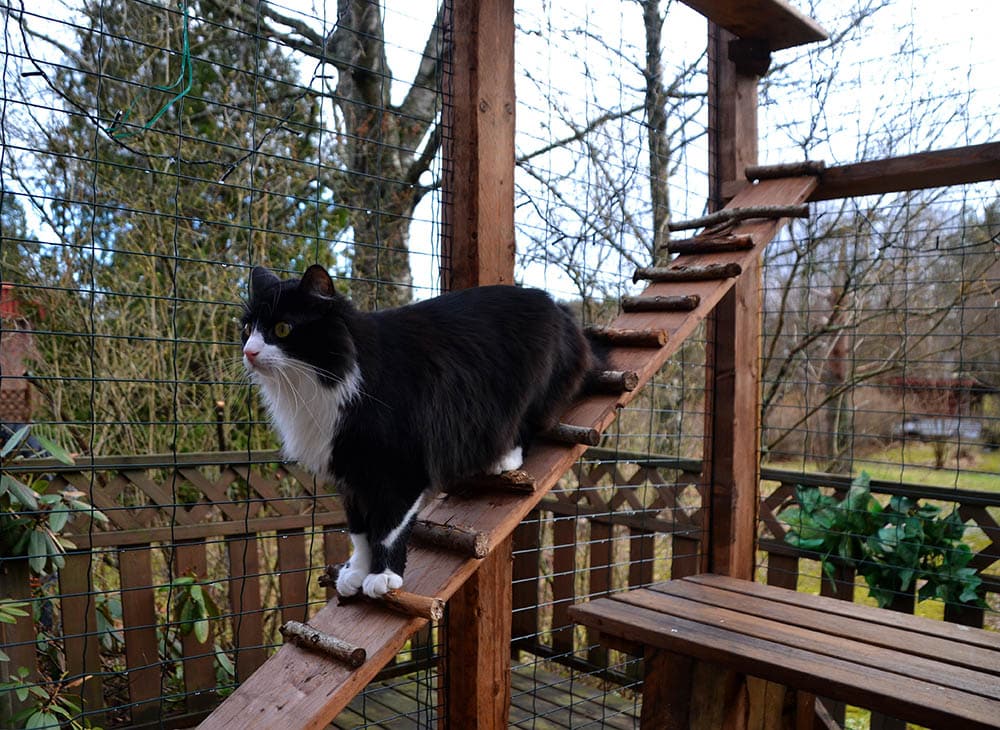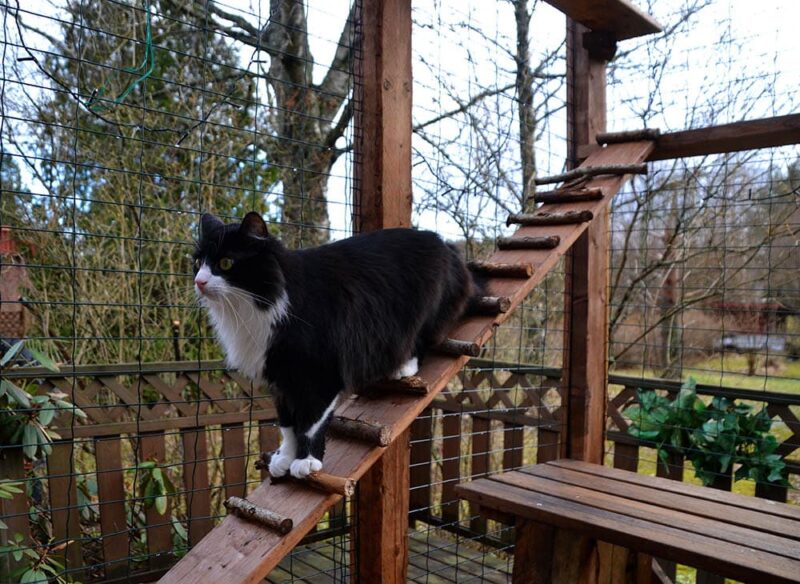Sometimes, your cat needs a little helping hand. Whether they’ve reached their senior years and need help getting up a steep flight of stairs, their litter box access is above ground level, or you want to provide a ramp up to furniture to stop them from digging their claws in the carpet when they jump, there are various DIY ramps and stairs that you can build.
We have included details of five projects that you can start. A few of the plans are for dog ramps and dog stairs, but they serve the same purpose—and you don’t have to tell your cat.
The 5 DIY Cat Ramps & Stairs
1. Cat Ramp Ladder Thingy
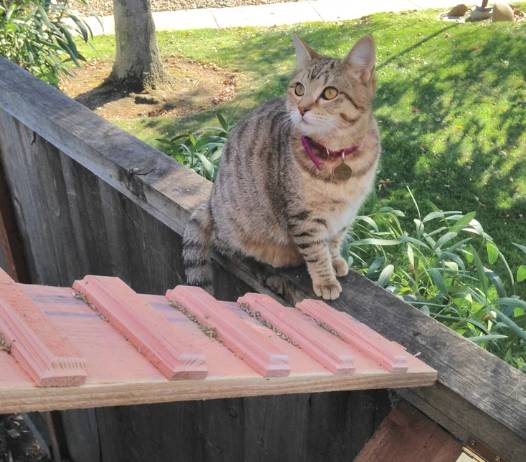
The cat ramp ladder “thingy” is used to offer access to an upstairs cat door. This means you can allow your cat easy entrance and access to the property without compromising the security of your home.
The ramp uses rough wood, and since it is going to be used outdoors, it will need proper weatherproof treatment to ensure that it lasts.
2. Adjustable Dog Ramp

This adjustable dog ramp can be used by cats, too. It extends from 16 to 30 inches, and while the original poster says that it is convenient for getting your dog up into and down from a car, it is more likely that a senior cat will use it to get on and off the sofa or other furniture.
3. Indoor Pet Ramp
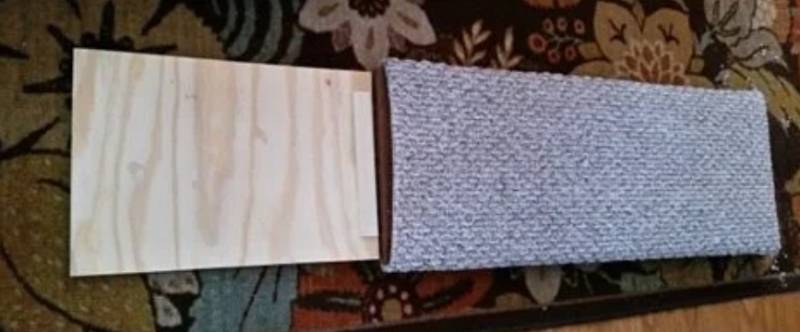
This indoor pet ramp is hinged and offers access to a sofa. It is kept firmly in place because the top layer of the stairs sits under the sofa cushion. You can add carpet to make it more comfortable for your cat to climb, and the hinge allows it to be adjusted perfectly to the height of the sofa base without having to take and use precise measurements.
4. DIY Dog Ramp
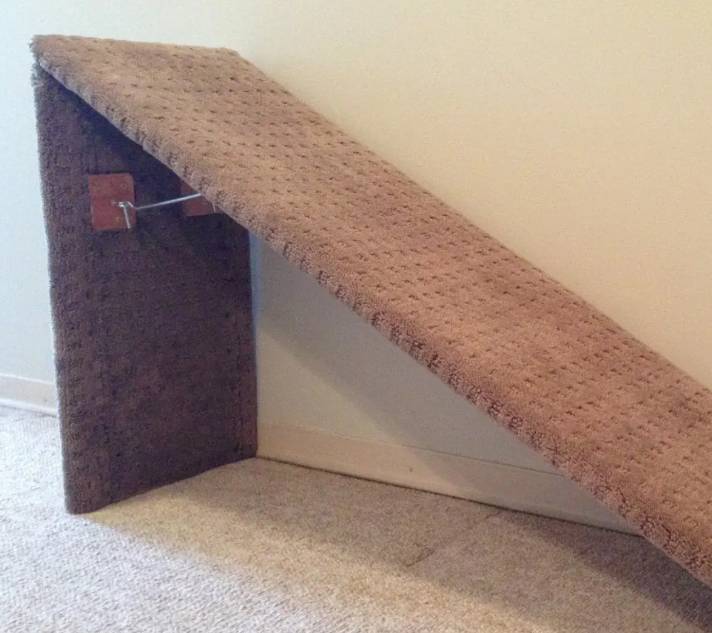
This is a dog ramp design that could easily be used for cats. Judging by the height of the design, it offers easy and stress-free access to a bed base. If you like having your cat sleeping with you but they can’t make the ascent to the top of the bed anymore, this is the solution.
5. DIY Dog Ramp for Bedroom
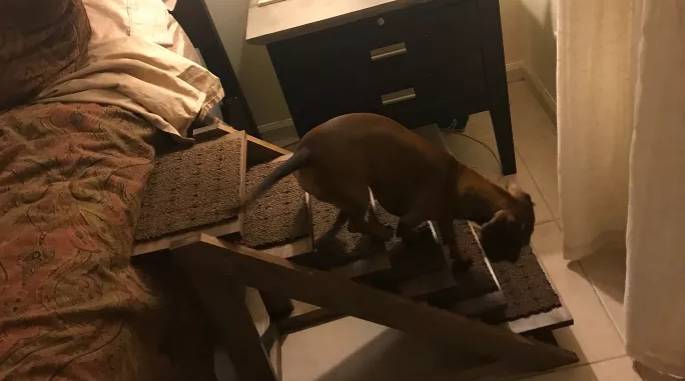
This is a ramp designed for dogs but equally suitable for cats. It has a little balustrade on the side and a carpet to offer texture and safer climbing, and it runs to the height of the bed.
It is designed to run alongside the bed, which means that it can be a long ramp with a shallow gradient that is easy to climb and won’t protrude out into the room.
Conclusion
Cat stairs and ramps provide an effective and simple way for your cat to get on top of high levels or to get first-floor access. They are designed to be convenient, and a ramp really only takes two pieces of wood, although additional pieces can be used for increased stability and to improve the look of the design.
Next on your reading list:
- 6 DIY Homemade Cat Urine Stain & Odor Removers To Try (With Pictures)
- Does Cat Pee Glow Under a Black Light? Science-Based Facts & Tips
Featured Image Credit: SariMe, Shutterstock

